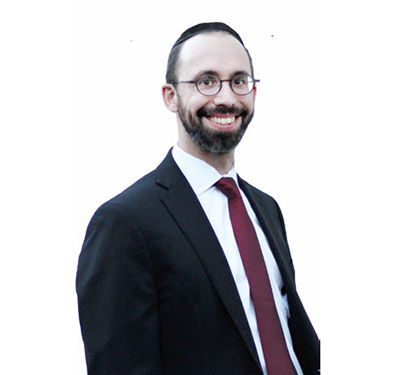
In Parshas Vayishlach, we have the greatest wrestling match of all time: Yaakov Avinu vs. the angel of Esav. It’s worth noting the word used to describe this wrestling match, vaye’aveik ish—and a man wrestled (32:25). The root of the word vaye’aveik is avak—dust. Rashi (quoting the Gemara Chullin) explains they wrestled with each other to the extent that they kicked up a tremendous amount of dust and the dust rose all the way up to the Throne of Hashem.
What is the significance of the dust rising all the way to the throne of glory?
This story will help us understand the answer. Boruch Hirschberg was a successful, young man, well-liked by his peers. As he was unfortunately nearing the end of his battle with cancer, he said to his father, “I know my time is near and I’ve decided I want my second grade rebbe, Rabbi Yitzchok Morgenstern, to eulogize me. Only him, except for family.” The father agreed, but asked, “Why only your second grade rebbe? You had many other terrific rebbeim over the years!”
“Because I owe all my success to him,” replied Boruch. “Let me explain. One day, when I was in second grade, Rabbi Morgenstern walked in with a big smile. He handed out a piece of paper to each of us with all the names of the boys in the class and asked us to write down next to each name a special quality of that boy. When we finished, the rebbe collected the papers. The next day, he handed each of us a paper with all the list of qualities that the boys in the class had said about each of us. I never felt so good about myself! Wow, I thought, Yanky really believes I’m smart and Shloimy says I’m a good ball player. There were many other complimentary opinions. From that point on, I had a new self-confidence; I realized the person I really could be.”
Boruch then pulled out an old folded piece of paper from his wallet and showed it to his father. “This is the paper that Rabbi Morgenstern gave me,” he said. “Since that day, I kept this paper in my wallet and whenever I doubted myself, I took it out and read it. This is how I was able to climb the ladder of life. Rabbi Morgenstern really believed in his students and he made me focus on my unique qualities and talents.”
A few days later, Boruch passed away and Rabbi Morgenstern was the only non-family member to eulogize Boruch. The shiva house was packed with many of Boruch’s classmates. Someone asked Rabbi Morgenstern why he was the only non-family member to give the eulogy. After a nod from Boruch’s father, Rabbi Morgenstern related the story. As he was finishing, all of Boruch’s former classmates reached into their wallets and pulled out their precious piece of paper. (Rabbi Spero, Touched by A Story 2)
Rav Gedalia Schorr sheds light on the Gemara that tells us the face of Yaakov was inscribed on Hashem’s Throne of Glory. This indicated the true level of perfection that Yaakov had: his reality mirrored his potential self on Hashem’s throne. Looking back at the wrestling match, the angel of Esav kicked up the dust to blur Yaakov Avinu’s vision of what he looked like and, mostly, what was his true potential. This was Esav’s attempt at victory: preventing Yaakov from seeing his own true nature.
Now we can understand why Yaakov Avinu’s name was changed to Yisrael after the match. He had battled and overcome the greatest challenges that the spiritual world could offer: the threat to lose sight of his potential greatness, the greatness that is latent in every Jew, waiting to be brought out. The angel of Esav is a manifestation of the yetzer hara (evil inclination), which seeks to obscure our vision of who we really could be.
This is a timeless message. Every Jewish soul emanates from the Throne of Glory. We each have the potential to reach great heights. We have an image in Heaven that represents our true potential. Our mission in life is to perfect our deeds, speech and thoughts so they mirror our image in heaven.
Our job is never to lose focus of who we can be. We can learn from Rabbi Morgenstern and Boruch that the greatest gift we can give people is to help them see their own potential for greatness and encourage them to reach that potential. Our spouses, our children, our friends and co-workers: love them, encourage them, compliment them and, most of all, believe in them.
And never forget: believe in yourself and do all it takes to be what you can be!
By Rabbi Baruch Bodenheim
Rabbi Baruch Bodenheim is the associate rosh yeshiva of Passaic Torah Institute (PTI)/Yeshiva Ner Boruch. PTI has attracted people from all over northern New Jersey, including Teaneck, Paramus, Rockaway and Fair Lawn. He initiated and continues to lead a multi-level Gemara-learning program. Recently he has spread out beyond PTI to begin a weekly beis medrash program with in-depth chavrusa learning in Livingston, Springfield and Fort Lee. This year he joined Yeshiva Heichal Hatorah as a Gemara iyun rebbe. His email is [email protected].













